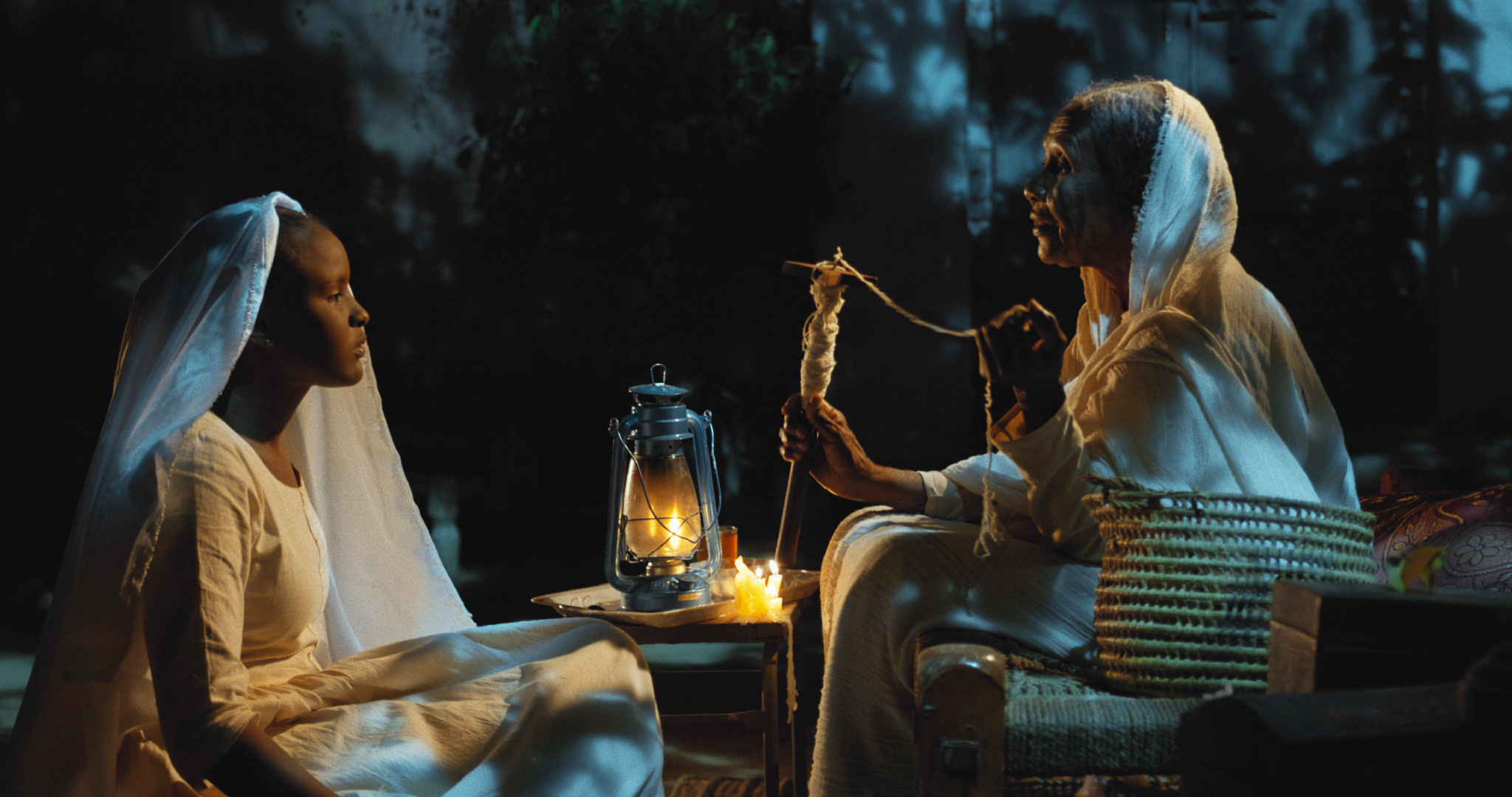Suzannah Mirghani, Sudanese filmmaker, explores Sudanese matriarchal traditions in her short film ‘Al-Sit’ in conversation with Khalid Ali
In 2019, Sudanese cinema came to the international limelight with three highly acclaimed films; ‘Khartoum Offside’ (Marwa Zein), ‘Talking about Trees’ (Suhaib Gasmelbari), and ‘You Will Die at Twenty’ (Amjad Abu Alala). These award-winning films were the forerunners of a wave of contemporary cinema portraying Sudanese society post the Revolution in 2018. Suzannah Mirghani is one of those eminent voices, a writer, researcher, and independent filmmaker. She is a media studies and museum studies graduate from Eastern Mediterranean University and University College London, Qatar. She publishes creative and scholarly work on cultural issues such as filmmaking and national identity. Having a mixed Sudanese and Russian heritage, Suzannah is interested in telling stories about the complexity of ‘identity’. Suzannah is the writer, director, and producer of Al-Sit (2020).
Narratives of Sudanese women are rarely seen on the big screen. Mirghani elaborates on that notion: “When I wrote the script for Al-Sit, I just wanted to tell a simple story about a young girl and her grandmother. Out of that relationship grew a fraught family drama about the concepts of power, domination, and personal choice. The setting itself is already pregnant with politics. The film takes place in a cotton-farming village that is still heaving with the legacy of British colonial abuse, which adds greater tension to the atmosphere.”
“International audience are not familiar with stories about Sudanese women for a variety of reasons, some of them are cultural and some of them are political. The three decades of Omar al-Bashir’s military-Islamist dictatorship steered Sudan towards conservatism and normalizing the marginalization of women, depriving them of any meaningful societal roles, actively blocking their paths to political institutions, and dampening their aspirations to assuming influential positions. However, this is not to say that Sudanese women did not have influence and authority in other aspects outside of formal politics. At the core of Al-Sit is an examination of Sudanese women’s familial and societal roles and the power dynamics within their household. In fact, the title of the film, Al-Sit, roughly translates into “mistress of the house,” it is an honorary title given to the family matriarch. The figure of the matriarch is revered in Sudanese society and one that has historical and cultural cache, challenging male dominance, no matter how economically or politically powerful the man may be.”

In the film, Al-Sit, the dominant grandmother, is a woman who uses her gravitas and position to enforce a certain way of life over her family and community. Reflecting on the origins of the character, Mirghani explains: “Al-Sit is an amalgam of many older women I encountered growing up in Sudan, including my own grandmother. For me, Al-Sit is a contemporary anomaly in every which way: she is too old, too frail, and too traditional for this world—and yet, not only does she exist in this world, but she also rules supreme. In many ways, older Sudanese women have long enforced traditions, especially pertaining to the household and family structure. Issues like arranged marriage are often promoted and perpetuated by grandmothers—from their perspectives, as a way of protecting the future of young girls in their family, but also as a way of ensuring that their own power and control endures.”
Some of Al-Sit’s actions might not be entirely moral. “What can you share with the reader about the ‘dark side’ of Al-Sit, without giving away the film plot?”
“Al-Sit’s motivations are multilayered, and her actions can be read in different ways. Even though I am the writer, who created this character, there is something in her personality that will always exceed my intentions. For me, Al-Sit is a particularly complex character because she seems to embody paradoxical traits: she is so tied up in a conservative sense of tradition, and yet, ultimately, she wants her granddaughter to experience freedom—Al-Sit’s version of freedom, that is. There is so much that is twisted about this logic that it only makes sense on Al-Sit’s terms. When we come to know the pain and suffering Al-Sit had to endure as a child bride, we begin to understand Al-Sit’s warped perspective, and only then can we sympathize with her.”
Al-Sit’s international premiere was at the Clermont-Ferrand short film festival in 2021 where it was honored by the Canal+ Award. Since then, the film has collected several prizes, including the Grand Prix at the Tampere Film Festival, which qualifies the film for consideration at next year’s Oscars. Al-Sit has also been awarded a Special Mention at the Malmo Arab Film Festival, the Jury Award at the Busan International Short Film Festival, and the Excellence in Women’s Filmmaking Award at the European Independent Film Festival.
Al-Sit was supported by Doha Film Institute, VCUarts Qatar, Sudan Film Factory, Highlight Productions, and On Set Team for Media Productions.